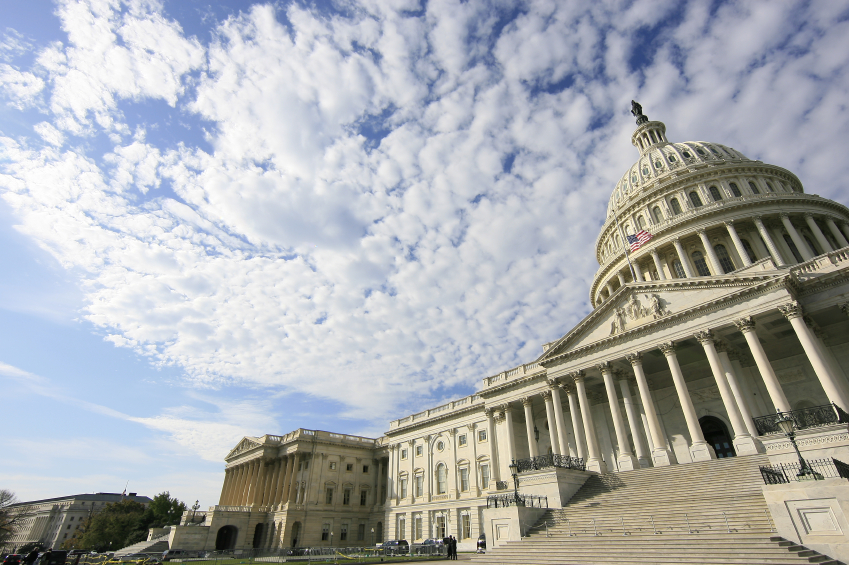 |
While hopes for a quick end to the government shutdown seem to be fading, history tells us that it will end—eventually. In the meantime, what could become the second longest government shutdown in U.S. history (if it continues past 18 days), has halted many services and programs that help protect America’s health, safety, and security.
According to the U.S. government’s official web portal (USA.gov):
Research into life-threatening diseases and other areas will stop, and new patients won’t be accepted into clinical trials at the National Institutes of Health (NIH).
Work to protect consumers, ranging from child product safety to financial security to the safety of hazardous waste facilities, will cease. The EPA will halt non-essential inspections of chemical facilities and drinking water systems.
Hundreds of thousands of Federal employees including many charged with protecting us from terrorist threats, defending our borders, inspecting our food, and keeping our skies safe will work without pay until the shutdown ends.
Vital services that ensure seniors and young children have access to healthy food and meals may not have sufficient Federal funds to serve all beneficiaries in an extended lapse.
While halting any of these services places American citizens at risk, those citizens awaiting approval to enroll in life-saving clinical trials are especially at risk.
According to the National Institutes of Health, “the NIH Clinical Center is open and continues to function during the partial government shutdown.” In addition, “patients currently enrolled in a protocol at the Clinical Center are able to continue their participation.” However, “the Clinical Center is not able to admit NEW patients — unless deemed medically necessary by the Clinical Center Director — if they are not already enrolled in a protocol.”
The NIH advises potential participants to consult with their research team.
In the meantime, each week, the NIH Clinical Center will have to turn away an estimated 200 patients hoping to enroll in clinical trials there. Many of these potential participants are cancer patients and an estimated 30 are children. According to NIH spokesman John T. Burklow, of the 30 children turned away, 10 are children with cancer.
Although hundreds of medical centers across the country conduct clinical trials, the NIH Clinical Center is the world’s largest hospital devoted exclusively to clinical investigation. The Center has welcomed more than 475,000 participants since it opened its doors in 1953, and the hospital sees roughly 10,000 new research participants each year. On the first day of the government shutdown, a staggering 1,500 clinical research studies were in progress at the Center.
A hefty one-half of the research studies at the Center are of the natural history of disease, especially rare diseases, which often are not studied anywhere else, says the NIH. Mesothelioma, a rare but aggressive form of cancer, is a member of this group.
The Center’s critical research studies and life-saving clinical trials (often the first tests of new drugs and therapies in people) go hand in hand. According to the NIH, “the clinical trials at the NIH Clinical Center are predominantly Phase I and Phase II, often first-in-human to test safety and efficacy.”
Simply put, the NIH needs human participants in order to continue to make advances in the treatment and possible eradication of all types of cancer.
Despite the government shutdown, cancer care, including mesothelioma cancer care, continues at the NIH. Clinical trials are still being conducted as well with participants who were enrolled before the shutdown. However, the Center is operating without roughly three-fourths of its staff, which is an estimated 14,000 employees.
Without funding to help put thousands of staff members back to work, to continue research, or to accept new participants into protocols, the NIH and thousands of cancer patients face an even greater uphill battle.
You can help. To help put pressure on the government to end the shutdown, start a petition. Visit the U.S. House of Representatives and the U.S. Senate websites to obtain contact information for your state’s senators and representative’s, or start a petition today at Change.org.
Sources
Hearst Corporation/Houston Chronicle | Chron.com
National Institutes of Health (NIH) Clinical Center | CC.NIH.gov
The Washington Post | Washingtonpost.com
The White House | Whitehouse.gov
U.S. Government Official Web Portal | USA.gov


No comments yet. You should be kind and add one!
By submitting a comment you grant Mesothelioma Blog – Information, Research, News, Answers, Legal a perpetual license to reproduce your words and name/web site in attribution. Inappropriate and irrelevant comments will be removed at an admin’s discretion. Your email is used for verification purposes only, it will never be shared.